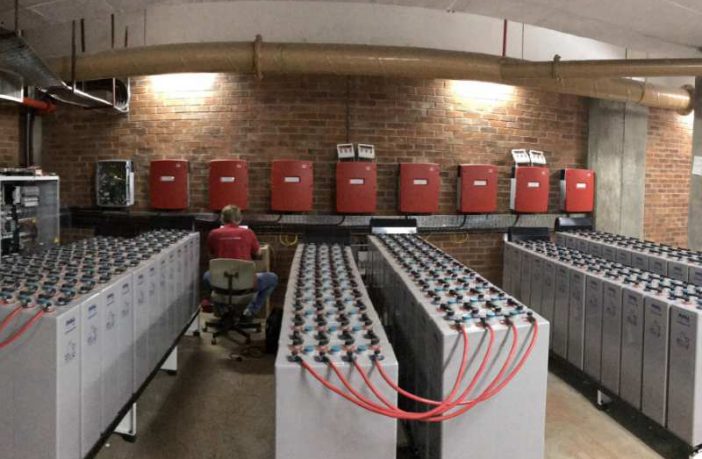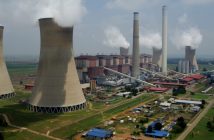- SAZ has installed a 194-kilowatt peak solar PV system with a 200 kWh battery storage system at its central administration building in Harare.
- The additional battery storage unit will ensure that the SAZ administrative building can access power even in the event of a blackout or in times of low solar irradiation.
The Standards Association of Zimbabwe (SAZ) in Harare, has successfully installed a 194-kilowatt peak system with battery storage to provide an uninterrupted, environmentally friendly power supply to its central administration building. SAZ is the National Standards Body for Zimbabwe
The PV system was installed and commisioned by IBC SOLAR South Africa, a subsidiary of the German system provider for photovoltaics (PV) and energy storage. The plant has a nominal capacity of 194 kWp and is connected to a battery storage unit with a usable capacity of 200 kWh.
The project developers explained that approximately 720 IBC PolySol 270 Wp polycrystalline solar modules will be producing around 300,000 kWh of solar energy per year, which is calculated to meet 75 % of the building’s energy needs.
The additional battery storage unit will ensure that the SAZ administrative building can access power even in the event of a blackout or in times of low solar irradiation. The system will save 270 tonnes of CO2 annually, helping protect the climate and the environment.
The PV plant was planned and installed as a collaborative project between Cool Solar, an IBC SOLAR Premium Partner based in Harare, and RED Engineering from neighbouring South Africa with products supplied by IBC SOLAR.
Technical experts from IBC SOLAR Germany and South Africa contributed additional technical support.
With two solar PV carports, the new system significantly improves SAZ’s energy supply security. Computers, printers, lights, air conditioners and refrigeration units now have a reliable source of energy and can be disconnected from the unstable public power grid and protected against grid power surges.
Energy shortages are a massive problem in Zimbabwe, multiple outages per day are a common occurrence. Most of the country’s power is generated by burning wood and coal, with renewable energies playing only a minor role — solar power represents a mere 1% of Zimbabwe’s energy supply. Read more: Zimbabwe to adopt energy mix-based tariff structure
Considering how much sun the country enjoys, it seems logical to expand the usage of photovoltaics there as much as possible, in order to electrify remote areas and help stabilise power supplies in an urban agglomeration.
Feeding solar power into the poorly developed public power grid is not permitted, so self-consumption systems would be the method of choice. The government is indirectly promoting solar energy’s expansion by exempting imported PV components from customs duties.
Author: Babalwa Bungane
This article was originally published on ESI Africa and is republished with permission with minor editorial changes.











